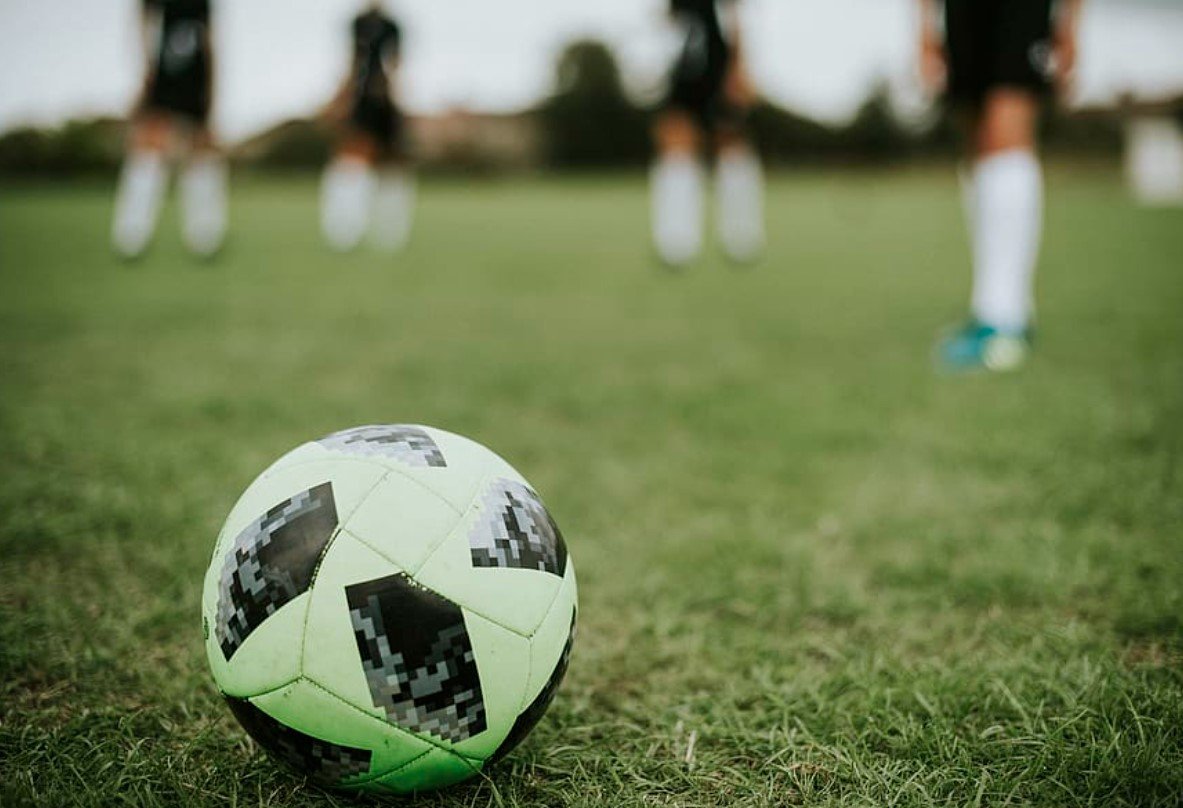Football is a game of passion, skill, and sometimes, aggression. But what happens when players cross the line and commit fouls that disrupt the flow of the game? How can referees enforce discipline and deter such behaviour?
These are some of the questions that football’s lawmakers, the International Football Association Board (Ifab), are trying to answer with a new experiment that will introduce sin-bins and blue cards to the game.
What are sin-bins and blue cards?
Sin-bins and blue cards are a form of temporary punishment for players who commit certain offences during a match. A player who receives a blue card from the referee will have to spend 10 minutes in the technical area, leaving his team with one player less on the field.
Sin-bins and blue cards are not meant to replace the existing yellow and red cards, but to complement them. Yellow cards will still be given for minor offences, while red cards will still be given for serious offences that warrant a permanent dismissal.

The idea behind sin-bins and blue cards is to make the consequences of fouls more immediate and visible, and to encourage fair play and respect among players.
What offences will lead to sin-bins and blue cards?
The exact offences that will trigger sin-bins and blue cards are yet to be determined, but Ifab has indicated that they will focus on two main areas: dissent and cynical fouls.
Dissent refers to verbal or non-verbal actions that show disrespect or challenge the authority of the referee or other match officials. Examples of dissent include shouting, swearing, gesturing, or arguing with the referee.
Cynical fouls refer to deliberate or reckless actions that prevent or interrupt a promising attack or a clear goal-scoring opportunity. Examples of cynical fouls include pulling, pushing, tripping, or holding an opponent.
Ifab believes that these two types of offences are among the most common and frustrating in football, and that they often go unpunished or under-punished by the current system of yellow and red cards.
How will the experiment work?
The experiment will start with a trial period, during which Ifab will invite interested competitions and associations to apply for participation. The trial period will last for at least one season, and will involve different levels and categories of football, such as professional, amateur, youth, and women’s football.
Ifab will monitor and evaluate the impact and effectiveness of sin-bins and blue cards on the game, using various criteria and indicators, such as the number and type of fouls, the number and type of cards, the behaviour and attitude of players, the reaction and satisfaction of fans, and the feedback and opinion of referees and coaches.
If the trial period proves successful and positive, Ifab will then consider whether to implement sin-bins and blue cards as a permanent rule change, or to extend the trial period for further testing and refinement.
What are the expected benefits and challenges of sin-bins and blue cards?
Ifab hopes that sin-bins and blue cards will bring several benefits to the game, such as:
- Reducing the frequency and severity of fouls, especially dissent and cynical fouls, by making the punishment more immediate and visible.
- Improving the behaviour and attitude of players, by making them more aware and responsible for their actions, and by fostering a culture of fair play and respect.
- Enhancing the enjoyment and entertainment of the game, by increasing the flow and continuity of the game, and by creating more opportunities and challenges for both teams.
- Supporting the role and authority of referees, by giving them more options and tools to deal with fouls, and by reducing the pressure and conflict they face from players.
However, sin-bins and blue cards also pose some challenges and risks, such as:
- Increasing the complexity and difficulty of refereeing, by adding more rules and decisions to the game, and by requiring more coordination and communication among match officials.
- Creating confusion and inconsistency among players, coaches, and fans, by introducing a new and unfamiliar system of punishment, and by potentially varying the application and interpretation of the rules across different competitions and levels.
- Affecting the balance and fairness of the game, by giving an advantage or disadvantage to one team over another, and by potentially influencing the outcome and result of the game.
What are the reactions and opinions of the football community?
The proposal of sin-bins and blue cards has generated mixed reactions and opinions among the football community, with some expressing support and enthusiasm, and others expressing scepticism and criticism.
Some of the supporters of sin-bins and blue cards include:
- The Football Association (FA) of England, which has already implemented sin-bins for dissent at grassroots level since 2019, and has reported a 38% reduction in dissent across 31 leagues.
- Mark Bullingham, the chief executive of the FA, who has said that sin-bins could also be used for cynical fouls, and that they could improve the quality and enjoyment of the game.
- Arsene Wenger, the former Arsenal manager and the current chief of global football development at Fifa, who has said that sin-bins could make the game more dynamic and exciting, and that they could reduce the need for video assistant referees (VAR).
Some of the critics of sin-bins and blue cards include:
- The Premier League, which has ruled out being part of the initial trial period, and has expressed doubts about the feasibility and suitability of sin-bins and blue cards for the top level of the game.
- Jurgen Klopp, the manager of Liverpool, who has said that sin-bins and blue cards could disrupt the rhythm and harmony of the game, and that they could create more problems than solutions.
- Gary Lineker, the former England striker and the current BBC presenter, who has said that sin-bins and blue cards are unnecessary and gimmicky, and that they could ruin the simplicity and beauty of the game.



































